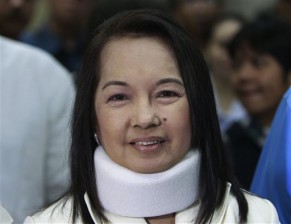MANILA, Philippines—The Court of Appeals has affirmed the constitutionality of President Aquino’s revocation of the so-called “midnight appointments” of his predecessor, Gloria Macapagal-Arroyo.
In a 23-page decision dated Aug. 28, the Court of Appeals Former 8th Division dismissed the petitions for interventions filed by Irma Villanueva and Francisca Rosquita, who asked for the nullification of Aquino’s Executive Order No. 2 that revoked appointments made by Arroyo during the 2010 election period.
“[T]he controversial EO 2 was a valid exercise of the executive powers of the President in ensuring that the rule on midnight appointments is properly implemented,” the appeals tribunal ruled in the decision written by Justice Noel Tijam.
The other division members, Justices Romeo Barza and Edwin Sorongon, concurred.
On March 3, 2010, Arroyo appointed Villanueva administration for the Visayas of the board of administrators of the Cooperative Development Authority under the Department of Finance. She took her oath of office on April 13, 2010.
Rosquita, on the other hand, was appointed member of the National Commission on Indigenous Peoples (NCIP) on March 5, 2010. She took her oath on March 18, 2010.
Aquino issued EO 2 shortly after he assumed the presidency on June 30, 2010. Executive Secretary Paquito Ochoa later issued a memorandum revoking the appointments of Rosquita, Villanueva and others.
The NCIP executive director wrote a letter to the Civil Service Commission’s (CSC) personnel policies and standards office on July 12, 2010, inquiring whether the employees of the government appointed before March 10, 2010, were considered midnight appointees.
The commission replied in a letter dated Aug. 31, 2010, stating that under CSC’s appointment rules, government employees appointed before March 10, 2010, were not considered midnight appointees, even if they took their oaths of office or assumed office after March 10, 2010.
Villanueva and Rosquita used the CSC declaration in contending that EO 2 revised the CSC’s appointment rules and trampled on the CSC’s prerogative as an independent constitutional body.
However, the Court of Appeals stated that the rules formulated by the CSC “must not override, but must be in harmony with, the law it seeks to apply and implement.”
“We are of the considered view that petitioners-intervenors are midnight appointees within the contemplation of Section 15, Article VII of the 1987 Constitution,” the appeals justices said.
Section 15 prohibits an outgoing president from making appointments two months immediately before the next presidential elections and up to the end of his term.
